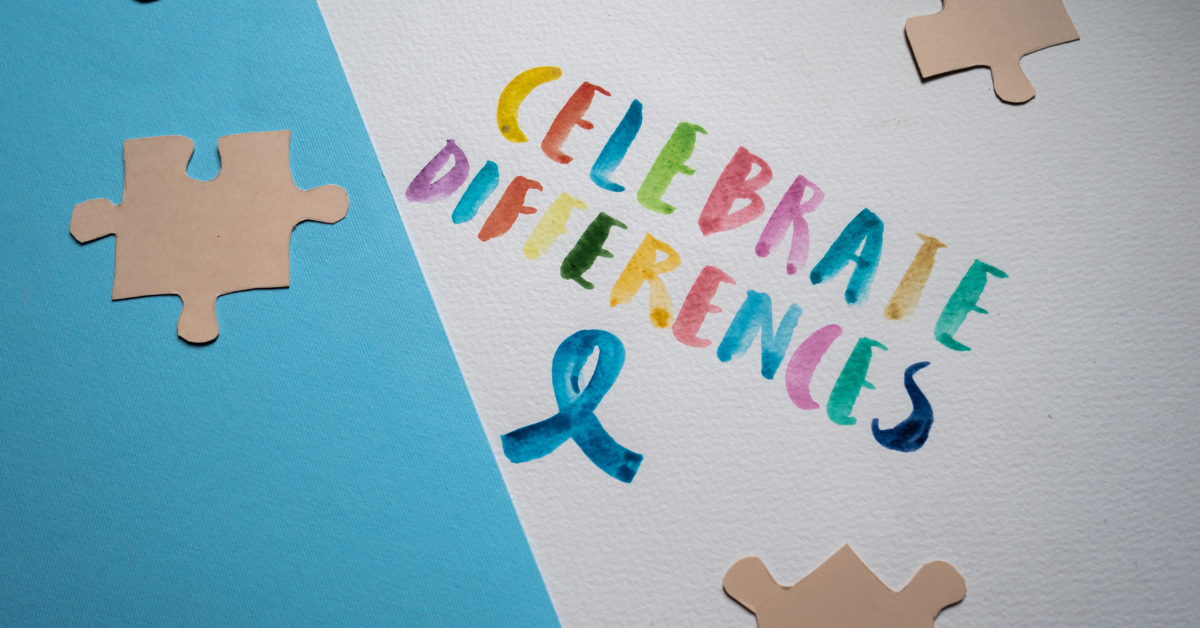April marks Autism Awareness Month, a time dedicated to increasing awareness and understanding of Autism Spectrum Disorders (ASD). It’s a month for educating the public, sharing stories from the autism community, and fostering an environment of support and inclusivity. This blog post aims to enhance your understanding of autism, debunk common myths, and guide you on how to be an ally to the autism community.
Understanding Autism Spectrum Disorders (ASD)
What is Autism?
Autism, or Autism Spectrum Disorder (ASD), refers to a broad range of conditions characterized by challenges with social skills, repetitive behaviors, speech, and nonverbal communication.
The Spectrum
The term “spectrum” in ASD highlights the wide variation in challenges and strengths possessed by each person with autism. Autism’s symptoms and signs can vary significantly from mild to severe, and no two autism cases are exactly alike.
Debunking Myths About Autism
Myth 1: Autism is Well Understood
Despite increased awareness, there are still many misconceptions about autism, including its causes and manifestations. Autism is complex, and its understanding requires continuous learning and research.
Myth 2: All Individuals with Autism Have the Same Symptoms
Autism manifests differently among individuals. Some might need significant support in their daily lives, while others may live independently and have successful careers.
Myth 3: Autism is a Result of Poor Parenting
This outdated notion has been debunked by numerous studies that recognize autism as a neurodevelopmental disorder with no single known cause.
Signs and Symptoms of Autism
Understanding the signs and symptoms can aid in early diagnosis and support. Key indicators include:
- Social Communication Challenges: Difficulty in sharing emotions, understanding social cues, or maintaining conversations.
- Repetitive Behaviors: Engaging in repetitive movements, such as rocking, or developing specific routines or rituals.
- Resistance to Change: Experiencing distress at small changes in routine or environment.
Supporting the Autism Community
Education and Awareness
Educating yourself and others is a vital step in supporting the autism community. Awareness leads to understanding, which is critical in fostering inclusivity.
Advocacy and Inclusion
Support policies and initiatives that promote the rights and inclusion of individuals with autism. This includes advocating for educational resources, workplace accommodations, and broader societal acceptance.
Supporting Autism-Friendly Events and Businesses
Participate in or support autism-friendly events and businesses that are designed to be accessible and accommodating to individuals with autism.
How to Be an Ally
Listen and Learn
Listen to the experiences of individuals with autism and their families. Understanding their challenges and needs can help in providing better support.
Use Appropriate Language
Be mindful of how you talk about autism. Focus on person-first language unless advised otherwise by individuals with autism. For example, say “person with autism” rather than “autistic person” if that is their preference.
Educate Others
Spread knowledge. Use your voice on social media platforms to share accurate information and positive stories about people with autism. This can help break down stigmas and promote a more inclusive community.
A Call to Action
Autism Awareness Month is more than just a monthly observance; it’s a call to action for everyone to actively engage in supporting the autism community. By increasing our understanding, challenging myths, and advocating for inclusivity, we can make a significant difference in the lives of those affected by autism.

